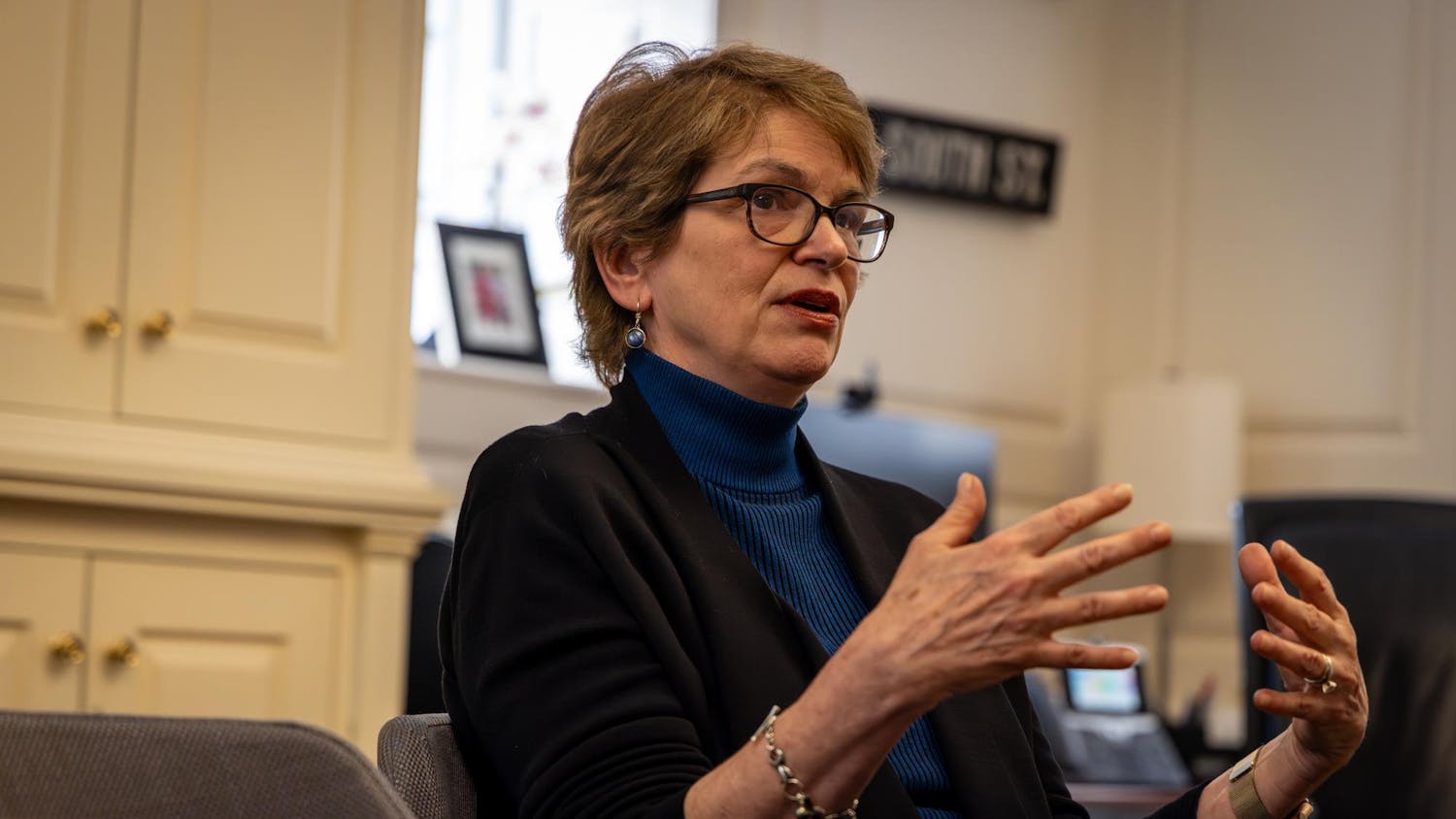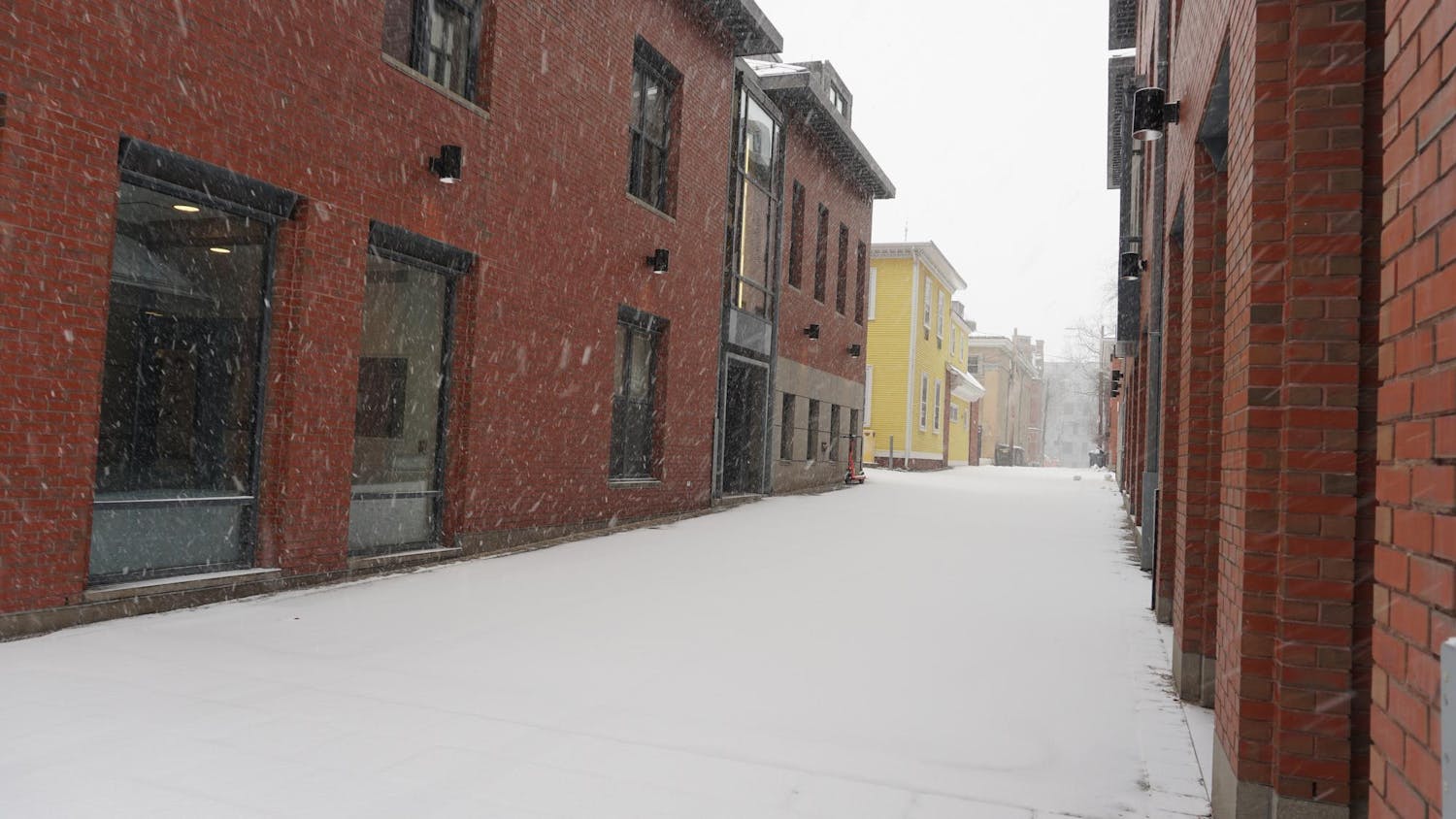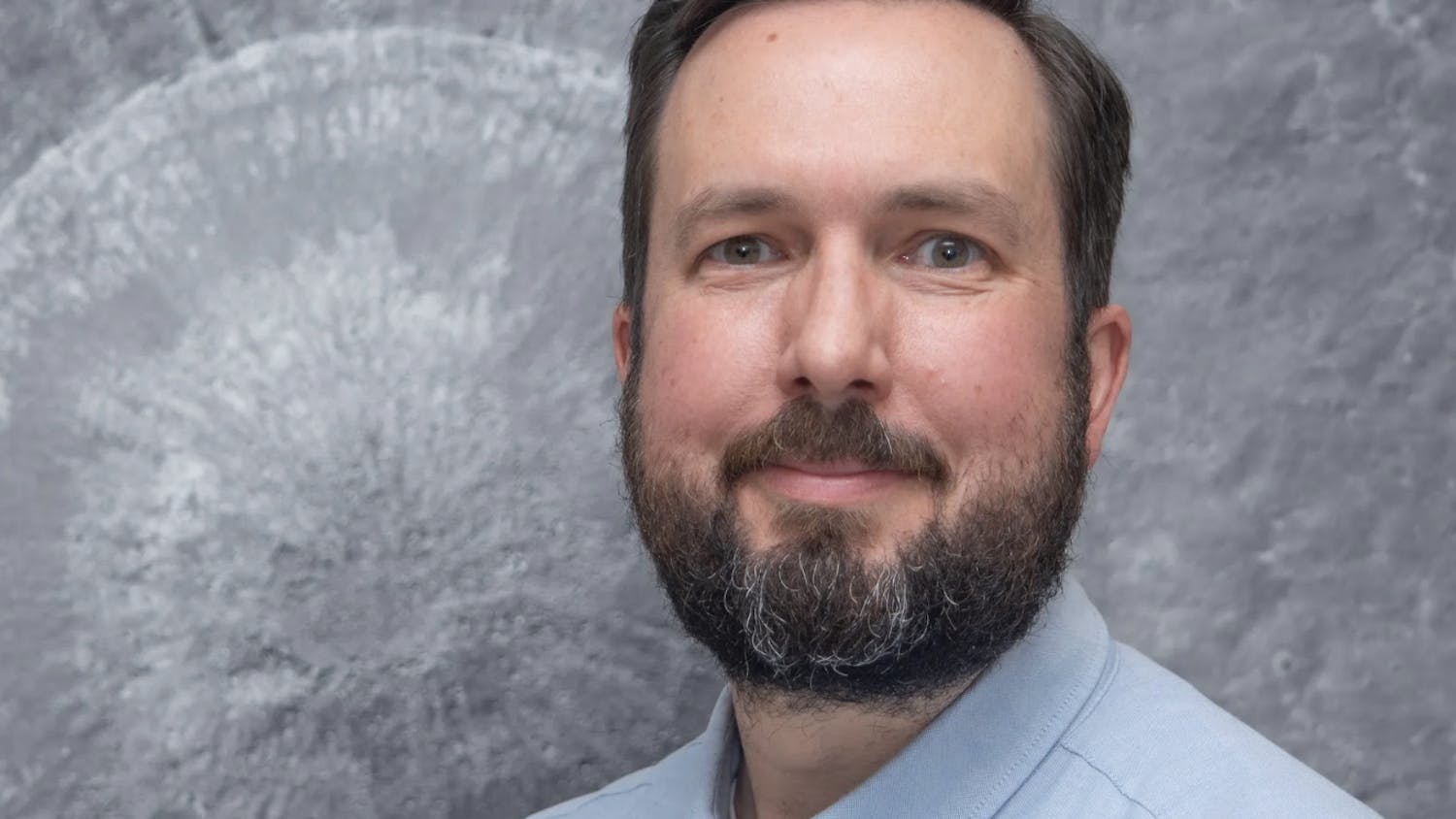On Friday, 19 students began an indefinite hunger strike in the Stephen Robert ’62 Campus Center that they say will last until the Corporation, the University’s highest governing body, “hears and considers a divestment resolution,” during their meetings that begin next week, according to a statement shared with The Herald.
Students announced the hunger strike during a Friday afternoon “rally for divestment” organized by the Palestine Solidarity Caucus and Jews for Ceasefire Now on the Main Green, at which approximately 350 were in attendance. Rally attendees flooded the campus center shortly after the announcement. Protestors also called on Senator Sheldon Whitehouse (D-R.I.) and Senator Jack Reed (D-R.I.) to support a ceasefire in Gaza.
The divestment resolution, the strikers say, should mirror the 2020 report released by the University’s Advisory Committee on Corporate Responsibility in Investment Practices that recommended divestment from “companies which profit from human rights abuses in Palestine.” The committee has since been renamed the Advisory Committee on University Resources Management.
This comes as the Corporation will begin several days of meetings on Feb. 8. The students will not be attending class during the duration of the strike.
The University did not immediately respond to a request for comment. Press representatives from the offices of Whitehouse and Reed did not immediately respond to a request for comment.
The hunger strike — led by “students from several allied affinity and organizing (campus) groups” — is set to be the United States’ largest since Oct. 7, according to the strikers. Upon review of previous hunger strikes related to the Israel-Palestine war, The Herald corroborated this claim.
Students are also calling for the University to promote an “immediate ceasefire in Gaza” and fully divest its endowment “from specified companies enabling and profiting from Israel’s genocide.” But they will only refuse to accept food until the Corporation hears their resolution.
The strike comes amid an ongoing United Nations International Court of Justice Case, where South Africa has alleged that Israel is enacting “acts and omissions” that are “genocidal in character … (against) the Palestinian national, racial and ethnic group,” the BBC previously reported.
The hunger strike is not the first of its kind in University history. In spring of 1986, four students sat-in at Manning Chapel and refused to eat in protest of the University’s partial divestment policy regarding the South African apartheid, according to the Brown University Library archives. The University disenrolled the students, who eventually re-enrolled following the end of their fast.
During the 1986 strike, University disenrolled the students due to “concern(s) about the students’ health and (the University’s) own liability,” according to the archive. Prior to their withdrawal, then-Dean of Student Life Eric Widmer informed the protesting students that he would “reassess (their) continued eligibility for enrollment at Brown,” claiming that the University could “not continue to be responsible for (their) well-being in an environment over which we have no control," according to a 1986 article by The Herald.
The current protesting students were screened by doctors prior to their participation in the hunger strike, according to strike spokesperson Sam Stewart ’24.
The protestors’ statement also drew a connection between their refusal to accept food and the starvation that a quarter of Gazans currently face, according to the United Nations. According to the Gaza Health Ministry, 26,900 Palestinians have died in Israel’s retaliation for an Oct. 7 attack that killed 1,200 Israelis and took more than 250 hostage.
After a series of speakers who discussed the plight of Palestinians in Gaza and the current state of their divestment campaign, their announcement of the hunger strike was met with cheers.
University Spokesperson Brian Clark confirmed that “students representing the group provided a letter to leaders from Brown’s Division of Campus Life” shortly thereafter.
“The endowment may continue to bloat … make no mistake, these institutions and these leaders are morally bankrupt,” a speaker announced at the beginning of the rally, prior to the onset of the hunger strike.
During a November UCS town hall, Chief Investment Officer Jane Dietze said the University does not “directly invest in any weapons manufacturers, arms manufacturers or defense contractors,” but does not publicly disclose what third-party investment manufacturers the endowment is affiliated with.
The Office is contractually obligated not to disclose the content of the managers’ portfolios, but assured that none have a specific focus on defense manufacturing.
The University divested from tobacco in 2003, from six companies involved in “genocidal actions and human rights violations in Darfur” in 2006 and partially divested from South African apartheid in the 1980s.
After the strike began, students gathered in the Leung Family Gallery to sing songs of solidarity.
Brown Divest Coalition, Jews for Ceasefire Now and Housing Opportunities for People Everywhere released a joint Instagram post detailing a Friday programming schedule following the announcement of the strike. Programs included an eyewash training, Shabbat prayer, and a “HOPE x SJP Divest 101” session.
The caption of the post wrote that the group would be publishing “daily schedules” as the strike continues.
Protestors affiliated with PSC and BDC have also been distributing written materials to prospective students embarking on campus tours. These fliers, obtained by The Herald, detail the current hunger strike and demands for divestment, as well as discussing recent arrests of student protestors.
In the coming days, the strikers plan to host “a variety of programming related to justice in Palestine: scholar-led teach-ins, readings, performances, vigils, and mourning and prayer rituals.” They also shared plans for “flier distribution, performances and rallies” to raise awareness of their efforts.
In two weeks, 41 students are set to face arraignment on trespassing charges following a previous sit-in protest on campus, wherein they demanded University divestment from “Israeli military occupation” and immediate ceasefire in the war, The Herald previously reported. During this sit-in, Paxson refused to adhere to the protestors’ demands, instead encouraging them to “submit a new request to ACURM” to examine their concerns. The court dates are set for Feb. 12 and 14.
An earlier sit-in on Nov. 8 resulted in similar charges against 20 protestors. Following the November shooting of three Palestinian college students, including Hisham Awartani ’25, in Vermont, the charges were dropped.
Both instances resulted in trespassing charges as the students remained in University Hall after operating hours, according to previous statements provided to The Herald by University Spokesperson Brian Clark.
The Campus Center is open for student access using their Brown ID 24 hours per day, according to the Campus Center Hours of Operation.
In the coming days, the strikers plan to host “a variety of programming related to justice in Palestine: scholar-led teach-ins, readings, performances, vigils, and mourning and prayer rituals.” They also shared plans for “flier distribution, performances and rallies” to raise awareness of their efforts.

Owen Dahlkamp was the managing editor of newsroom on The Herald's 135th Editorial Board, overseeing the paper's news operations. Hailing from San Diego, CA, he is concentrating in Political Science and Cognitive Neuroscience with an interest in data analytics. In his free time, you can find him making spreadsheets at Coffee Exchange.
Samantha was a University News editor overseeing the affinity and activism beat.





